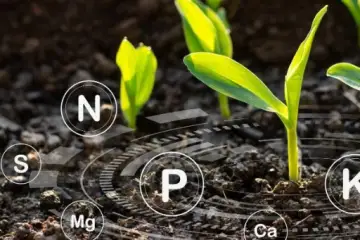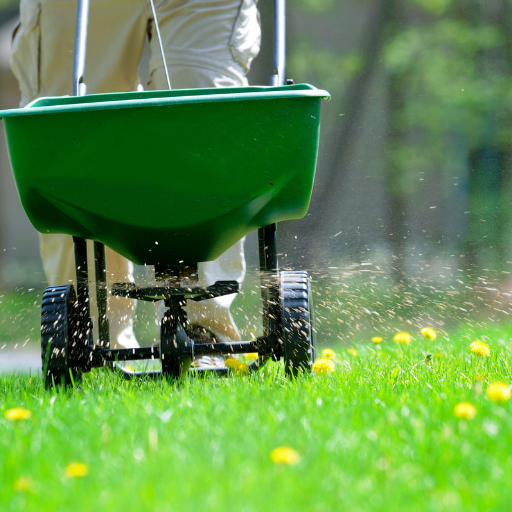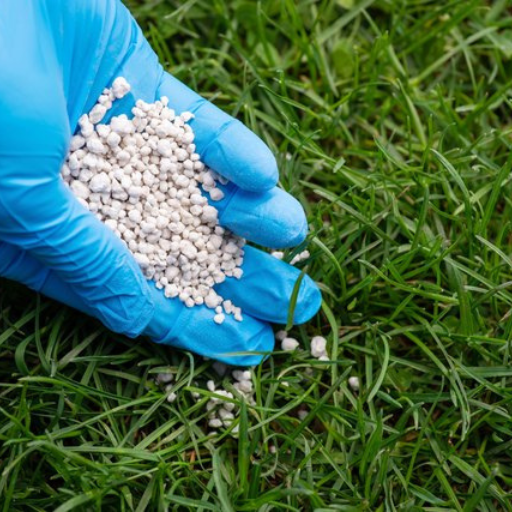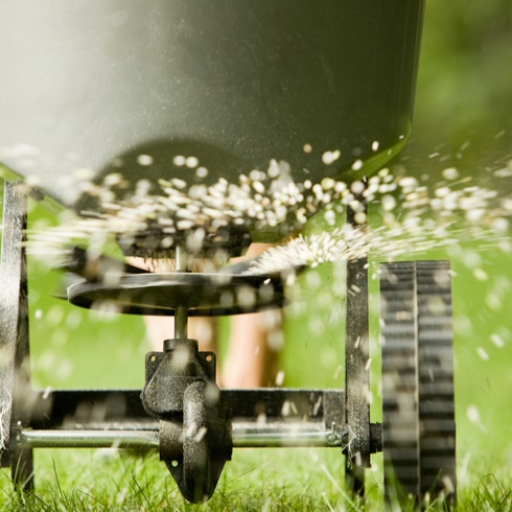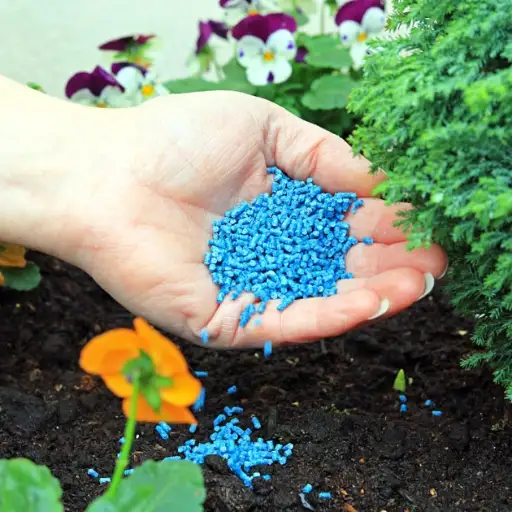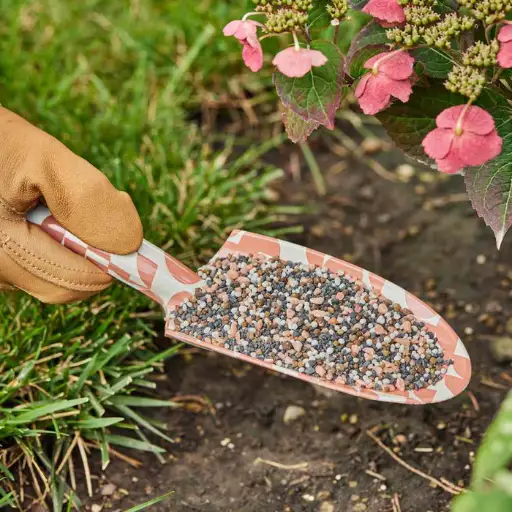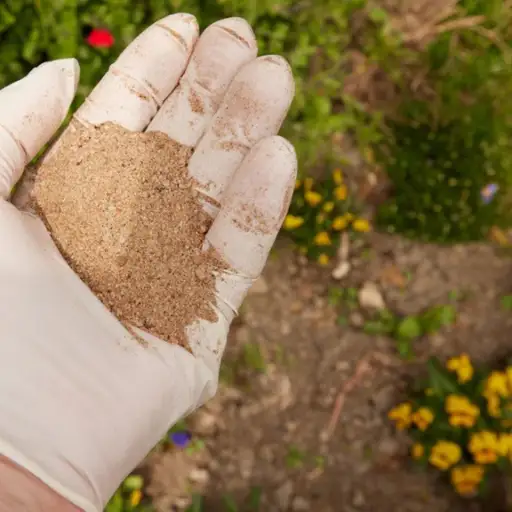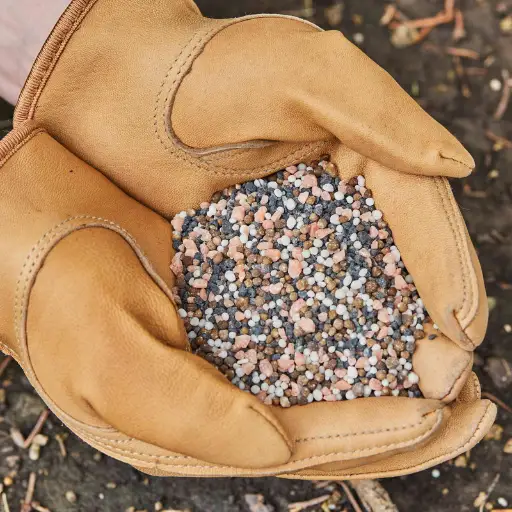Maintaining a lush, vibrant lawn requires more than just regular mowing and watering; it also necessitates the right type of nourishment. In this comprehensive guide, we will dive into the world of liquid organic lawn fertilizers, exploring how they can be a game-changer for your lawn care regimen. From understanding the key benefits of using organic over synthetic fertilizers to detailed application tips, this article aims to provide you with all the information you need to achieve that perfectly green lawn. Whether you are a seasoned gardener or a lawn care novice, our guide is designed to help you unlock the secrets to a healthier, more sustainable lawn.
What is Organic Liquid Lawn Fertilizer?
Understanding Organic Lawn Fertilizer
Organic liquid lawn fertilizer is a nutrient-rich liquid that comes from such sources as compost, plant extracts and animal waste. In contrast to synthetic alternatives that are made of chemical compounds, organic fertilizers work by adding important nutrients and beneficial microorganisms to the soil. These natural ingredients break down slowly releasing small amounts of nutrients for healthy root growth and improved soil structure. As a result, a more elastic and brighter lawn is obtained which does not depend much on chemicals and fits well with the surrounding.
Liquid versus Granular Fertilizers: What are the Differences?
Moreover, it is crucial to consider how these two types differ in order to decide which one will be most effective for your garden.
- Absorption and Availability: Liquid fertilizers provide rapid nutrient supply by being quickly taken in by plants through both the soil and foliage. This makes them perfect for quick greening or rectifying nutrient deficiencies promptly. Contrarily, granular fertilizers give off their nutrients gradually as they dissolve over time, meaning that feeding occurs over an extended period.
- Application Process: Any liquid fertilizer requires even distribution across the lawn using a hose-end sprayer or specialized liquid fertilizer applicator. Spreading evenly while being watered in to start decomposing so that nutrients can be released is done using granular fertilizers.
- Precision and Control: For instance, liquids allow precise application; thus concentration can easily be changed. They are perfect when used on certain problematic sites only. Meanwhile granules are preferred due to storage convenience as well as reduced frequency of application since they are usually applied once every four to six weeks.
- Cost and Convenience: On one hand, liquid options may have higher initial costs but might turn out cheaper in future because they are versatile and efficient. In contrast, granulated ones come at lower prices initially while providing an easy way out for those who do not want frequently performing lawn activities.
Therefore, you will have all the necessary information to decide on the best way of ensuring that your lawn remains green and healthy all through the growing season.
Benefits Offered by Natural Liquid Lawn Fertilizers
Another reason why organic liquid fertilizers are popular is that they appeal to environmentally-aware gardeners. The first advantage of these fertilizers is that their sources include natural elements like fish emulsion, compost tea, and seaweed among others which minimize chemical run off dangers and ensure a healthy habitat. Secondly, they enhance soil health through promoting beneficial microbial activities as well as improving soil structure thereby leading to improved root development and better plant growth. Thirdly, these types serve as fast nutrient boosters because they can be easily absorbed by plants either through foliage or roots hence producing results quickly. Also, most of them are safe for children as well as pets; therefore natural liquid fertilizers become a good choice in such cases. Thus you nurture earth friendly gardening practices while still maintaining a thick green lawn when you choose natural options.
How to Apply Liquid Lawn Fertilizer?
Choosing the Right Sprayer for Liquid Lawn Care
The choice of a sprayer for liquid lawn care is important in order to obtain the best effects. There are three major types of sprayers: hose-end sprayers, backpack sprayers, and pump sprayers. Hose-end sprayers are convenient and easy to use as they attach to your garden hose directly and mix fertilizer with water while spraying at once. These are perfect for extensive gardens or people who don’t want complications. Backpack sprayers can be more accurate and controllable, thus suitable for medium sized lawns up to large areas where specific spots need targeting. They are carried on one’s back allowing prolonged usage without fatigue. Pump sprayers work best with small lawns or spot treatments since pressure is built manually hence providing precision and control over the process of application. When purchasing a sprinkler consider the size of your yard, convenience during its use and how much power you have in order to make sure that you carry out gardening services correctly.
Steps for Effective Hose End Application
Effective hose end application of liquid lawn fertilizer involves several key steps. First, connect the hose end spray nozzle securely onto your garden housepipe. Then fill it with recommended amount of liquid fertilizer. Adjust the spray settings according to the manufacturer’s instructions to achieve the desired mixture ratio.. Begin from one corner of your law moving systematically across so as not concentrate on one area more than other making sure that all areas are evenly covered Finally, ensure that you maintain a regular pattern so that you do not miss any parts or leave some areas untreated As soon as this is done lightly water your lawn to help penetration into soil and reach roots by fertilizer Application Regularly clean and service your applicator to increase durability.
How Often Should You Fertilize Your Lawn?
Determining frequency of fertilizing depends on various factors like grass type, soil type and local weather conditions around you then how often should you fertilize? Generally, most lawn grasses require between two to four fertilizer applications in a year. A common schedule includes feeding in early spring, late spring, summer, and fall. For cool-season grasses like Kentucky bluegrass and fescue, fertilization should be done during the months of greatest growth which are usually cooler springs and fall. For warm-season grasses including Bermuda and St. Augustine, it is best to fertilize them during warmer periods such as late spring through summer. Therefore it is important to adhere to specific instructions for your type of grass and regional guidelines that may help you not over-fertilize leading to destruction of your garden in particular and the environment at large.
What Nutrients Are in Organic Liquid Lawn Fertilizers?
The Role of Nitrogen, Phosphorus and Potassium (NPK) fertilizers
Organic liquid lawn fertilizers typically contain essential nutrients that promote healthy grass growth, and the key ingredients are Nitrogen (N), Phosphorus (P), and Potassium (K). Nitrogen is important in promoting lush green foliage and robust growth. It aids in chlorophyll production which is essential for photosynthesis processes. Conversely, phosphorous enhances strong root development and helps to improve nutrient uptake and efficient water absorption by the plant. Additionally, potassium improves the general health of the plant by enhancing its resistance to diseases as well as making it more tolerant to drought condition thus improving its wear tolerance. All three elements therefore combine to form a balanced feed that will keep your lawn healthy throughout the whole year.
Benefits of Humic and Fulvic Acid Kelp
Humic acid in kelp has several beneficial effects on lawn health because it acts as a natural soil conditioner increasing nutrient availability while fulvic acid acts as a chelating agent binding with nutrients making them available for plant absorption. These includes improved nutrient uptake and maintaining healthy plants at all times. Besides, fulvic acid plays a role in detoxifying the soil through breakdown of toxins and heavy metals which makes this environment safe enough for cultivation.
Incorporating Seaweed and Other Plant Nutrients
Incorporating seaweed into your lawn care regimen offers numerous benefits due to its rich composition of trace minerals, hormones, and organic matter. For instance, seaweed is an excellent natural fertilizer providing nitrogen, potassium or phosphorus necessary for grass growth that needs proper tending. Also found within seaweed is alginic acid which conditions soil by improving its structure thereby retaining more soil moisture than before; this helps in nutrient uptake by plants as well as reducing water requirements during watering sessions.
Apart from seaweed, other plant nutrients like compost, bone meal and fish emulsion are significant in maintaining a healthy lawn. Compost not only improves soil fertility but also enhances water retention of the soil among other things. Rich in phosphorus, bone meal is necessary for strong root development and flower production. A high-nitrogen fertilizer like fish emulsion helps to increase leafy growth and general plant vigor.
By infusing better natural nutrients into your lawn care program; you will help it develop a stronger character that can withstand different environmental stresses.
Can Liquid Lawn Fertilizer Be Used on All Types of Grass?
Compatibility with Different Turf Types
Generally, liquid lawn fertilizer is compatible with most grass types including common ones like Bermuda, St. Augustine, Zoysia and Fescue. The versatility of these fertilizers lies in their ability to provide essential nutrients in a form that can be readily absorbed to promote healthy growth across different turf types. However, it is crucial to follow the application instructions provided by the manufacturer because the nutrient requirement as well as optimal application rates may differ among species of grasses. Always remember to carry out soil test for your lawn before you apply so that you can be sure of giving your lawn appropriate nutrients and avoiding over-fertilizing.
Best Practices for New Grass and Established Lawns
For new grass, the soil must be adequately prepared prior to broadcasting or sodding. Start by testing the soil to determine its nutrient levels and pH balance. Based on the results, amend the soil with the necessary fertilizers and organic matter. Post sowing seeds or laying sods should involve use of starter fertilizer high in phosphorus which is instrumental in developing strong root systems. During this period, water should be frequently but gently applied on the new grass so as to maintain constant moisture until it has fully established.
For established lawns however, maintaining nutrient levels becomes critical in promoting vigorous growths. Balanced fertilizers containing nitrogen, phosphorous and potassium are used for overall healthiness. Application normally takes place during growing seasons especially late springs through early falls when utilization by grass is at its peak phase. Application rate instructions from manufacturers should thus be adhered to avoid over-fertilization since excess amounts will damage both grasses and surrounding environments alike. Lastly regular mowing should be done keeping an optimum height of grass suited for specific turf type and deep root growing watering not forgetting conducting periodic soil tests to enable adjust your fertilization strategy correspondingly aligning it with varying needs of your lawn.
Why Choose Organic Liquid Lawn Fertilizer?
Understanding the Ecological Footprint
Organic liquid lawn fertilizers are a better alternative to synthetic ones because it has several environmental benefits. The first is that they are made up of natural substances like blood meal, seaweed, and compost tea that are biodegradable and hence cannot pollute the underground water; this helps reduce the level of chemical runoff into aquatic ecosystems. Secondly, organic fertilizers make soils healthier by increasing microbial activity in them thereby providing essential nutrients to plants which can be used instantly improving the general wellbeing of turf grasses promoting ecological resilience. Lastly, there is a possibility of using organic fertilizer instead of numerous chemical inputs that cause pollution over time making lawns more sustainable. Using organic options means you support biodiversity and your environment will be green and healthy.
Safety Benefits for Pets and Children
Selecting natural liquid lawn fertilizer ensures both children’s safety and the well-being of pets. Unlike synthetic manure with probable harmful chemicals or poisons, these types usually have ingredients from nature therefore making them harmless to all living creatures including humans. This implies that your children together with dogs should play on the grass without being at risk from any poisonous materials emitted by inorganic fertilizers produced thus giving you confidence as their parent or owner respectively. Moreover, organic fertilizer minimizes cases of allergies and skin irritations leading to safer outdoors for loved-ones’ well-being in general. When I am using products which are not artificial but originating naturally it gives me an assurance that my dear ones live in a safe environment around them.
Long-term Effects on Soil Health
Through selecting an organic form of liquid lawn fertiliser such as in this case study, I’m investing into soil health for future generations. By adding sufficient quantities of dirt mixture to improve its structure through organics, soil conditioners yield maximum results for future cultivation practices. In contrast with conventional grounds where water retention capacity is lessened, humus rich soils become more fertile over a long period of time. This means that there will be less use of fertilizers by plants as they will acquire heavy roots which strongly anchor them giving the room for manure being applied rarely. Said differently, the utilization of natural soil supplements maintains sustainable lawn care that helps to support biodiversity and environmental health in general. I am ensuring that my turf remains viable in the long run by focusing on its soil’s well-being.
Frequently Asked Questions (FAQs)
Q: What is the recommended frequency for applying liquid organic lawn fertilizer?
A: It is usually advised to apply liquid grass food every 4-6 weeks during the growing season. Though follow the directions from your liquid lawn grub manufacturers to get the best results.
Q: Is liquid organic lawn fertilizer better than granular fertilizer?
A: Liquid organic fertilizers are taken up by plants more quickly in order to deliver nutrients faster. They offer more even application because they can be combined with water and scattered over using a garden hose. This makes our lawns look greener and more uniform.
Q: Are there any eco-friendly benefits to using liquid organic lawn fertilizer?
A: Of course! Organic liquids, such as those provided by LOYAL are made of natural ingredients and often certified as organic. Pet safe, child friendly and environment friendly.Offering sustainable gardening practices in your yard promoting a healthy ecology
Q: Can liquid organic lawn fertilizer help with root growth?
A: Yes, these are specially formulated for developing strong roots; they are known as 16-4-8 solutions since they have all important minerals that promote deepening of roots thus making it more resilient and healthier.
Q: Is it possible to over-fertilize with liquid organic lawn fertilizer?
A: There can still be cases of over-fertilizing with this type though not common compared to chemical types. To avoid damaging your garden always adhere to recommended dosage and times given on product labels.
Q: Do I need special equipment to apply liquid organic lawn fertilizer?
A: Also most of them can be applied through an attachment on a garden hose, which makes these products very accessible and simple for homeowners looking for easy solutions for their lawns. Alternatively, some may be sold in ready-to-spray quart or gallon containers.


